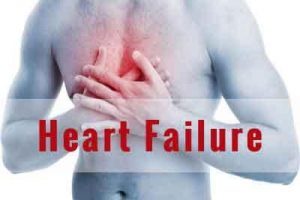- Home
- Editorial
- News
- Practice Guidelines
- Anesthesiology Guidelines
- Cancer Guidelines
- Cardiac Sciences Guidelines
- Critical Care Guidelines
- Dentistry Guidelines
- Dermatology Guidelines
- Diabetes and Endo Guidelines
- Diagnostics Guidelines
- ENT Guidelines
- Featured Practice Guidelines
- Gastroenterology Guidelines
- Geriatrics Guidelines
- Medicine Guidelines
- Nephrology Guidelines
- Neurosciences Guidelines
- Obs and Gynae Guidelines
- Ophthalmology Guidelines
- Orthopaedics Guidelines
- Paediatrics Guidelines
- Psychiatry Guidelines
- Pulmonology Guidelines
- Radiology Guidelines
- Surgery Guidelines
- Urology Guidelines
Gout drug Probenecid found effective in adult heart failure : JAMA

Researchers at the University of Cincinnati (UC) College of Medicine have conducted a study on 20 patients at their Medical Center and have found that probenecid, a drug used to treat gout, may be able to improve heart function in adult patients who experience heart failure.The results have been published in the Journal of the American Heart Association .
"We were testing if probenecid was safe for patients," says Jack Rubinstein, MD, associate professor in the Division of Cardiovascular Health and Disease, and corresponding author for the study. "We know that it was very likely to be safe because the medicine had been taken by people of all ages for decades. It has a very strong safety profile. We were quite happily surprised it improved the two main ways in how the heart functions. It improves how the heart contracts and how it relaxes."
The patients were offered probenecid as part of a randomized, double-blind, crossover and placebo-controlled single-center clinical trial. Patients, who averaged 57 years of age, were enrolled during four-week periods between June 2013 and April 2015.
They were required to undergo an echocardiogram, an electrocardiogram and six-minute endurance test along with other assessments, explains Rubinstein, a UC Health cardiologist and member of the UC Heart, Lung and Vascular Institute.
The study's first author is Nathan Robbins, a senior research assistant in the UC College of Medicine, who started out volunteering with Rubinstein in the laboratory examining the echocardiograms of animals treated with probenecid before later being hired to help recruit heart failure patients.
"This is the first time probenecid has been used in heart failure patients and we showed it increases the ejection fraction in patients with heart failure," says Robbins. "It was exciting to be able to see this medicine work from the bench to the bedside."
Rubinstein also partnered with basic scientists led by Sakthivel Sadayappan, PhD, professor in the UC College of Medicine and director of the heart branch of the UC Heart, Lung and Vascular Institute. Sadayappan and his researchers examined probenecid in animal heart cells and found it improved how well the heart uses calcium, an important component in cardiac muscle contraction.
"The medicine works in ways we know about and in ways we don't know about," says Rubinstein. "For the past four or five years we have been figuring out some of the ways the medicine works. We have figured out a lot of them, but there is still a lot we don't know."
Heart failure occurs when the heart pump is not strong enough to move blood throughout the body and meet the body's needs for oxygen, explains Rubinstein. It affects 5.7 million people in the United States, according to the Centers for Disease Control and Prevention.
"The repercussions are potentially significant--if we are able to confirm this experiment in larger studies with longer-term follow up--this could present a new way of treating heart failure for which there are limited medical therapies available," says Rubinstein.
"Left ventricular assist devices, pacemakers, heart transplants and medications are available to treat heart failure patients, but outcomes for patients with heart failure are still worse than outcomes for the vast majority of cancer patients," says Rubinstein. "That's what we want to effectively change."

Disclaimer: This site is primarily intended for healthcare professionals. Any content/information on this website does not replace the advice of medical and/or health professionals and should not be construed as medical/diagnostic advice/endorsement or prescription. Use of this site is subject to our terms of use, privacy policy, advertisement policy. © 2020 Minerva Medical Treatment Pvt Ltd